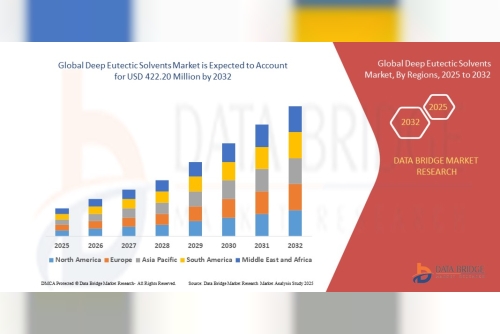Introduction
Let’s face it, healthcare billing in the United States can be a nightmare. That is exactly why Revenue Cycle Management in USA is so important. It is the system that helps healthcare providers, from individual clinics to large hospitals, get paid for the services they offer.
In simple terms, Revenue Cycle Management or RCM is the step-by-step financial journey of a patient, starting with appointment scheduling and ending with the final payment. Without proper management of this cycle, healthcare providers risk lost revenue and unnecessary delays.
What is Revenue Cycle Management in USA
Revenue Cycle Management in USA refers to the complete financial process that healthcare providers use to manage the flow of revenue from patient care. It includes the following essential functions:
Patient
registration
Insurance verification
Medical coding
Claims submission
Payment posting
Denial management
Patient collections
When these tasks are handled properly, healthcare providers receive payments faster, avoid claim rejections, and maintain a stable cash flow.
The Main Stages of Revenue Cycle Management
Patient Pre-registration and Data Collection
Before a patient even steps into a clinic, their personal and insurance details must be collected accurately. Mistakes at this stage can lead to denied claims and delays in payment.
Insurance Eligibility Verification
Confirming whether a patient’s insurance is valid and covers the planned services helps reduce rejections and billing problems.
Charge Capture and Medical Coding
Every service or treatment must be recorded and converted into standardized codes such as ICD 10 and CPT. Correct coding ensures that claims are processed without delays or disputes.
Claims Submission
Once the data is coded, claims are sent to insurance companies. Submitting clean claims with no errors is crucial for fast approval and payment.
Payment Posting and Reconciliation
When payments are received from insurers or patients, they must be properly posted to the correct accounts. Reconciliation helps identify any payment discrepancies.
Denial Management and Appeals
Some claims are denied by insurance companies. Handling denials quickly and effectively means resubmitting corrected claims and following up until payment is made.
Patient Billing and Collections
Patients are responsible for a growing share of healthcare costs. Clear, simple billing and easy payment options can improve collection rates and customer satisfaction.
Why Revenue Cycle Management in USA is Essential
There are several strong reasons why Revenue Cycle Management in USA is crucial for healthcare providers:
It
improves cash flow and speeds up payments
It reduces administrative burden and errors
It helps maintain compliance with healthcare regulations
It enhances the overall patient experience
In short, efficient RCM means your healthcare business runs more smoothly and profitably.
Common Challenges in Revenue Cycle Management
High Claim Denials
Many claims are rejected due to incorrect coding, missing documentation, or insurance issues. Without a solid denial management strategy, revenue loss is inevitable.
Regulatory Complexity
Healthcare laws and billing guidelines change often. Keeping up with these changes is essential to avoid penalties and rejections.
Patient Payment Responsibility
Patients now pay more out-of-pocket than ever before. Collecting payments has become more time consuming and sensitive.
Manual Processes
Relying on manual data entry and paper-based systems increases the chances of error and slows down the revenue cycle.
How Technology is Transforming Revenue Cycle Management
Modern tools are making Revenue Cycle Management in USA more efficient than ever. Here is how technology is changing the game:
Artificial
intelligence helps detect claim errors before submission
Cloud-based platforms allow real-time access to billing data
Electronic health record integration speeds up documentation
Automated reminders and eligibility checks reduce missed payments
With these tools, healthcare providers can handle more claims in less time and with fewer mistakes.
The Benefits of Outsourcing Revenue Cycle Management
More providers are choosing to outsource their revenue cycle operations, and for good reason:
You gain
access to specialists who understand medical billing inside and out
You save on staffing, training, and technology costs
You receive payments faster with fewer claim denials
You and your team can focus more on patient care and less on paperwork
Why Choose MyBillingProvider.com
If you are looking for a reliable and efficient revenue cycle partner, visit MyBillingProvider.com. They are experts in Revenue Cycle Management in USA, offering tailored services to healthcare practices across the country.
Here is why they stand out:
Experienced
billing professionals
Advanced automation tools
Detailed and transparent reporting
Proven success in increasing collections and reducing denials
Whether you are a small clinic or a large medical group, MyBillingProvider.com offers solutions that work.
Emerging Trends in Revenue Cycle Management for 2025
As healthcare continues to evolve, so does RCM. The future looks more digital and patient-friendly than ever. Key trends include:
Predictive
analytics for forecasting revenue
Mobile-friendly patient payment systems
Real-time insurance eligibility verification
Greater integration with electronic medical records
These trends help healthcare providers deliver better service while boosting their bottom line.
Best Practices for Effective Revenue Cycle Management
If you want to optimize your revenue cycle, start with these practical steps:
Train
your staff regularly on coding and compliance
Monitor key performance indicators like claim denial rates
Conduct regular internal audits to catch and correct issues
Use flexible payment options and patient-friendly billing
Automate repetitive tasks wherever possible
These strategies can help you reduce errors, collect payments faster, and improve the patient experience.
Common Misconceptions About Revenue Cycle Management
Myth One: RCM is Only About Billing
False. Revenue Cycle Management covers the entire process from scheduling to final payment, not just billing.
Myth Two: Small Practices Do Not Need RCM
Even solo providers can benefit from a well-managed revenue cycle to keep their finances healthy.
Myth Three: Automation Replaces Human Expertise
Technology is helpful, but trained professionals are still needed to manage exceptions, appeals, and complex claims.
Conclusion
There is no question that Revenue Cycle Management in USA plays a vital role in the success of healthcare providers. Whether you are running a small clinic or a multi-specialty hospital, an efficient RCM process ensures that you are paid accurately and on time.
By using the right technology, outsourcing when necessary, and following best practices, you can build a revenue cycle that is fast, efficient, and patient-centered. And if you are looking for expert support, MyBillingProvider.com is a name you can trust.












